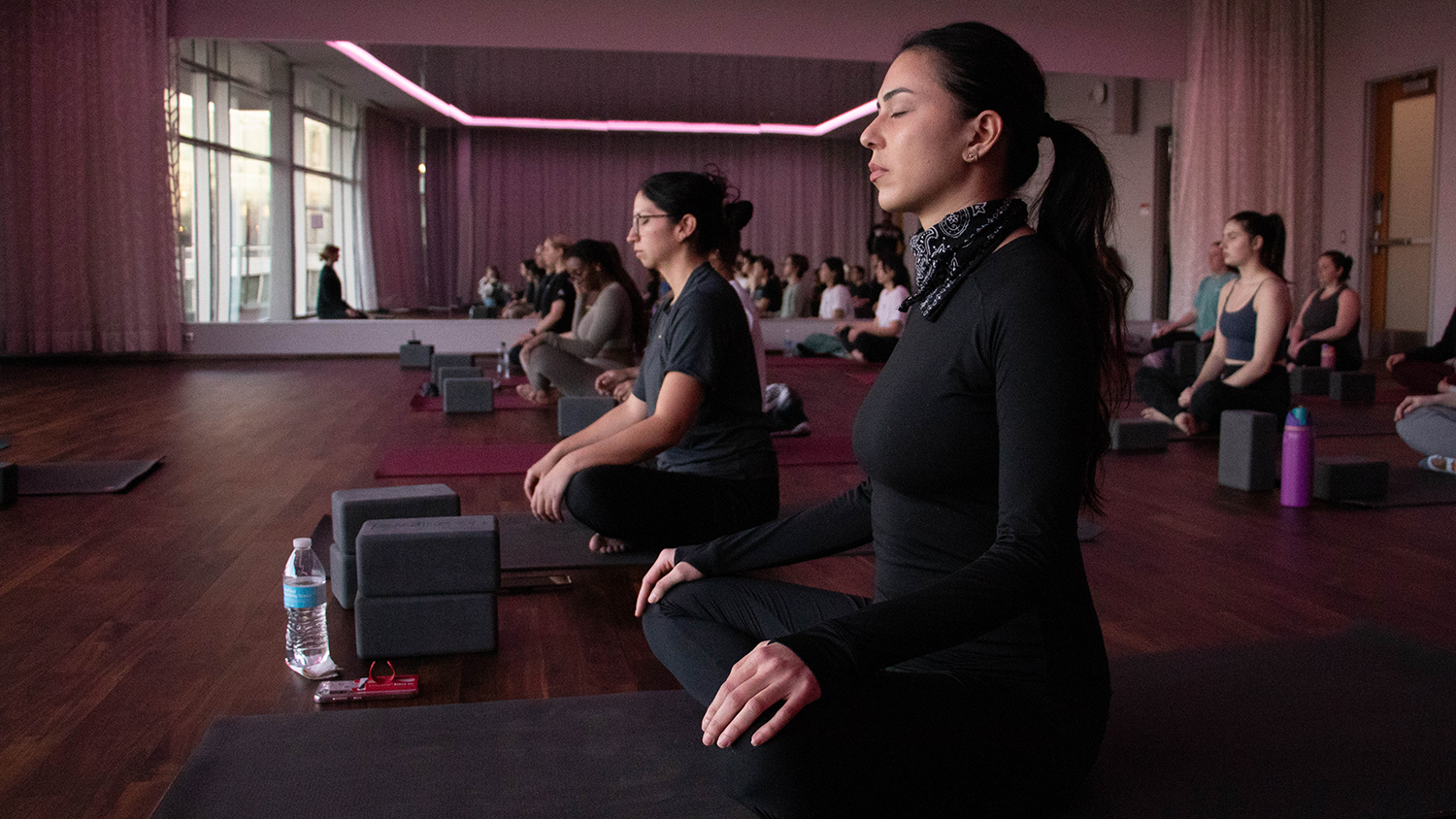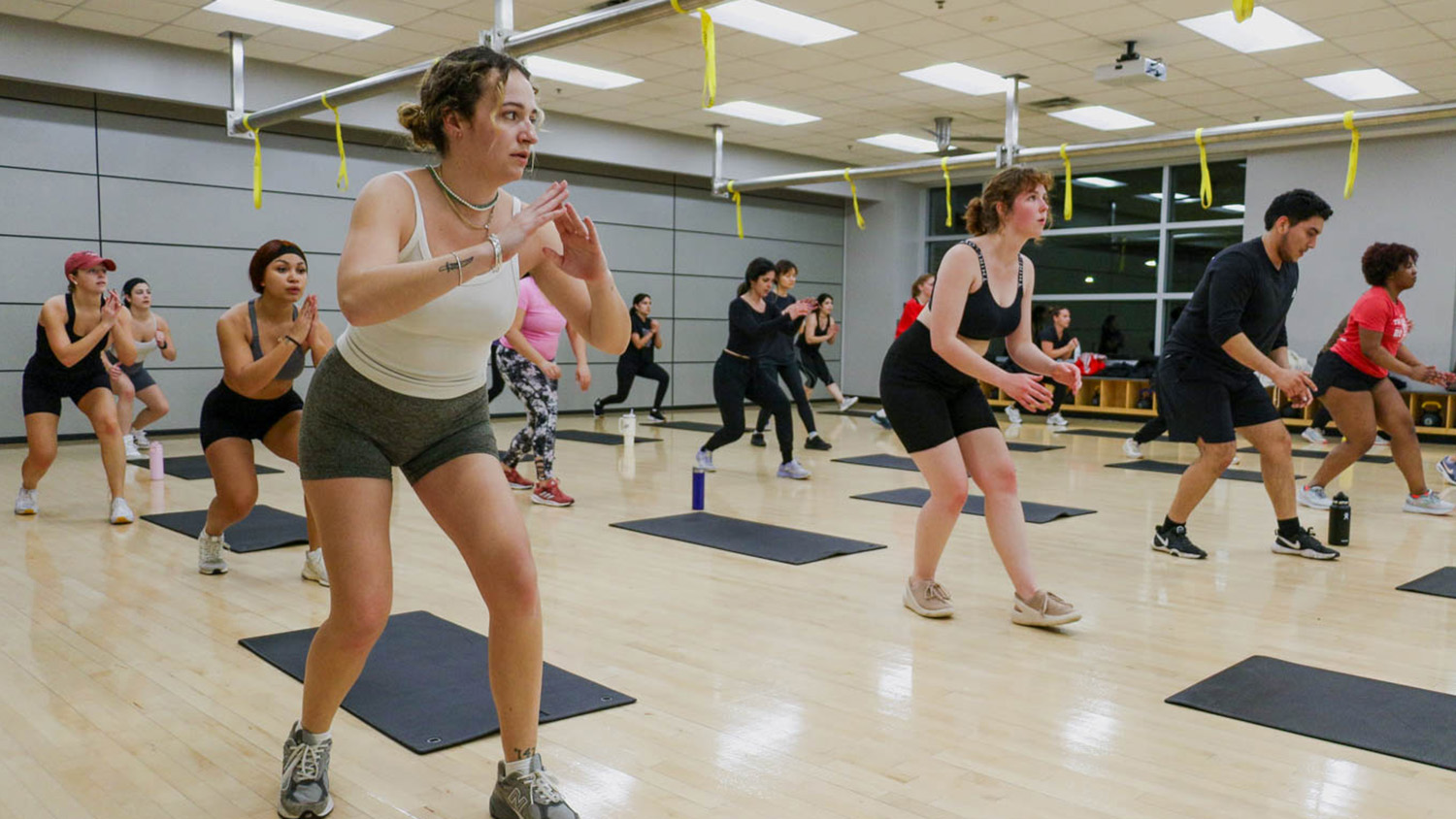Wellness Wednesday: Putting Stress to Rest, Avoid Stress to Impress

October is here and spooky season is officially upon us. For many students, there are few things scarier at this time of the year than mid-term exams. The stress to perform well can be challenging to handle, but there are several ways to manage it. At NC State Wellness and Recreation, we’ve curated a list of tools to add to your stress-busting toolkit based on some skills we highlight in our education sessions.
Movement as Meditation
Exercise in all forms is a great way to reduce feelings of stress. Moving your body releases feel-good chemicals, called endorphins. According to the Cleveland Clinic, endorphins can relieve pain, improve mood and boost overall well-being. Exercise also helps to take your mind off things. When you take a quick run or bike ride, your attention is directed to your movements and breath rather than your stressors.
There is no one-size-fits-all approach to exercise. Wellness and Recreation offers several different amenities, facilities and equipment to suit your individual goals and abilities. Fitness classes are a free resource for all students and anyone with a Wellness and Recreation membership. You can choose from over 70 offerings each week, from more high-intensity activities like cycling or TRX, to slower, more intentional movement through yoga.
If you’re looking for a fun opportunity to move your body, look no further than Glowga. Glowga is a free yoga and meditation experience for all students. Come out to Stafford Commons on Thursday from 6:30-8:30 p.m to light up the night and relax. Yoga offers the chance to connect mindfulness with movement and overtime can improve quality of sleep and feelings of anxiety.
Breathing Techniques
Stress can affect our bodies and minds in many different ways. Common symptoms of stress include rapid heart rate, muscle tension and anxiety. Learning to hone your breath can help to manage these symptoms and ground yourself in the moment.
The 4-7-8 breathing method is a simple technique that you can do anywhere. Start by inhaling for four counts, hold your breath for seven counts and then breathe out for eight counts. It may take a few rounds before you start to see any results. Extended practice can help to integrate this into your stress response.
Nostril breathing is another easy method. With your thumb, block one nostril and take a deep inhale through the opposite one. Once you reach the top of your breath, block the opposite nostril and exhale. Repeat this cycle however many times you need to until you feel de-stressed.
Time Management
Time management is an important skill for several aspects of life, but especially during exam season. In order to ensure success, it’s necessary to avoid procrastination to get on top of your assignments. A priority matrix is useful for knowing the order of tasks to be completed. To create one, Todoist offers tips on determining how to prioritize based on level of urgency and the importance of a task. Consider your own priorities within this matrix and think about your tasks with the closest deadlines and highest level of importance- these are your high-priority items and can be completed first. From there, list your remaining tasks accordingly.
Once you have ranked your tasks in order of priority, carve out time in your schedule to work on each one through time blocking. Google Calendar is a great tool for this and is free for anyone to use, but pay attention to how many blocks you have in your calendar. In the above link, todoist offers examples of misconceptions of time blocking and how that impacts your calendar.
Sleep
In life, sleep might take a backseat to completing important assignments, studying or simply living. According to the CDC, most adults should sleep between seven and nine hours each night. When we fail to receive the proper amount and quality of sleep, we are more likely to experience poor mental health, forgetfulness and difficulty learning. For your best sleep, avoid using technology at least an hour before bed, limit caffeine and set the thermostat to around 65 to 68 degrees Fahrenheit (18-20℃).
As you gear up to tackle the semester’s biggest challenges, remember to also focus on your health and well-being. Don’t be stressed to impress. Your academic and personal success depend on it in the long run.
- Categories:


